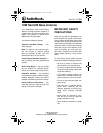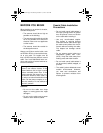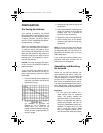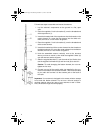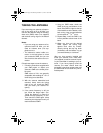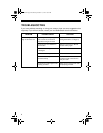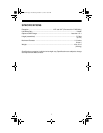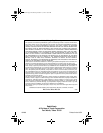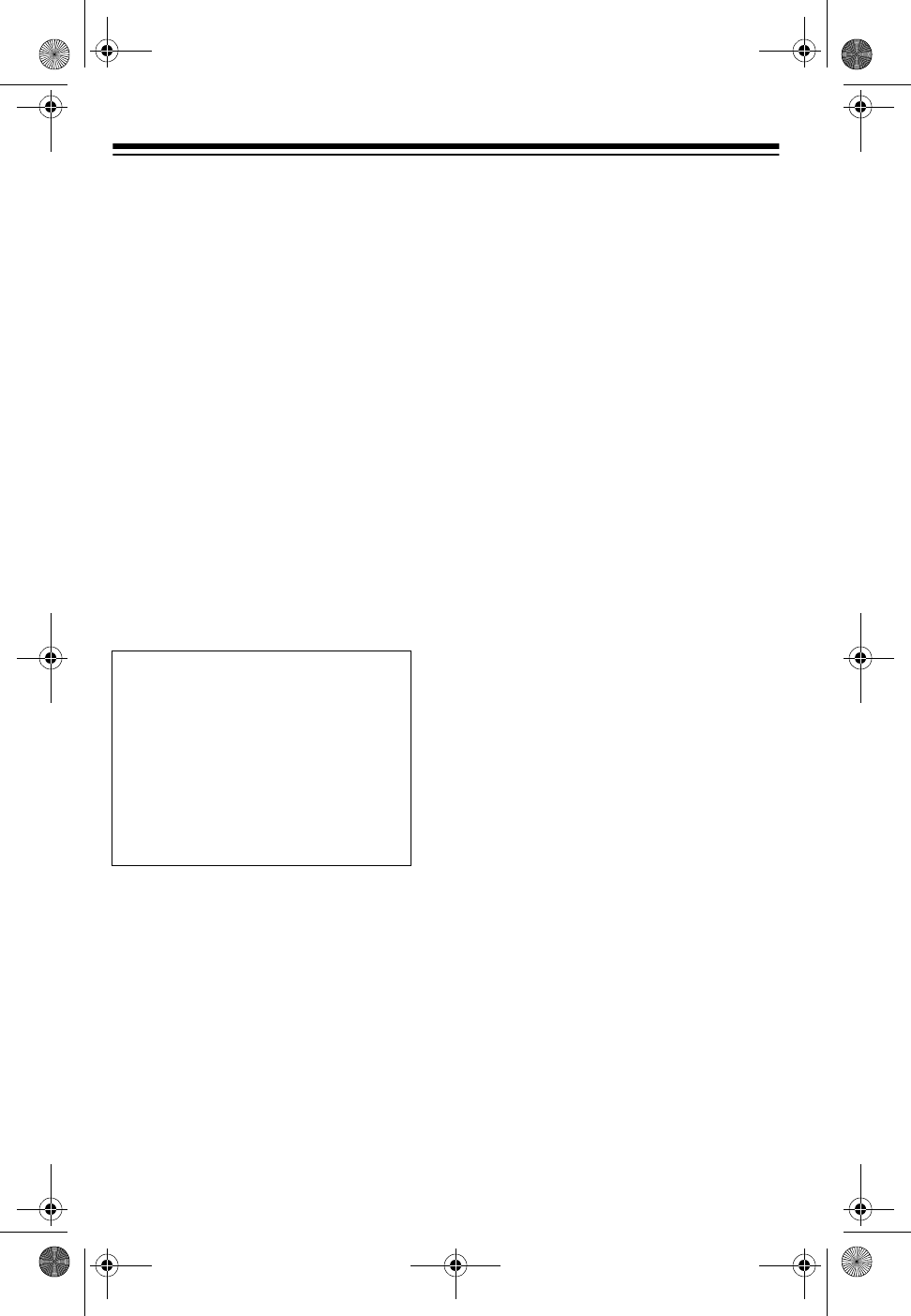
2
BEFORE YOU BEGIN
When deciding on an antenna’s location,
consider these points:
• The antenna should be as high as
possible on the building.
• The antenna and its cable should be
as far as possible from sources of
electrical noise such as appliances
or other radios.
• The antenna should be vertical for
the best performance.
Always use 50-ohm coaxial cable, such
as RG-58 or RG-8, to connect the anten-
na to your radio. For lengths over 50
feet, use RG-8 low-loss dielectric coaxial
cable. Your local RadioShack store car-
ries a wide variety of coaxial antenna ca-
ble and connectors.
Warning: When you install an outdoor
antenna, use extreme caution. If the
antenna starts to fall, let it go! It could
contact overhead power lines. If the
antenna touches the power line, con-
tact with the antenna, mast, cable, or
guy wires can cause electrocution and
death. Call the power company to re-
move the antenna. Do not attempt to
remove it yourself!
Cautions:
• Do not run the cable over sharp
edges or moving parts that might
damage it.
• Do not run the cable next to power
cables or other antenna cables.
Coaxial Cable Installation
Precautions
• Do not install coaxial cable where it
will have a pulling tension of greater
than 50 pounds. Leave no tension
on the cable after installing it.
• Use only round-headed staples.
Any clamps or securing devices
used with coaxial cable should grip
the cable evenly about the circum-
ference without crushing the cable.
Flat staples can damage coaxial
cable.
• Do not expose coaxial cable to a
temperature greater than 176°F
(80°C). Keep the cable away from
heating vents and water heaters.
• Do not install coaxial cable where it
will be crushed, stuffed, wedged, or
pinched.
• The cable’s jacket withstands most
outdoor environments. However,
you must seal connections and
splices to prevent moisture from
entering them.
21-869.fm Page 2 Wednesday, October 13, 1999 11:50 AM



